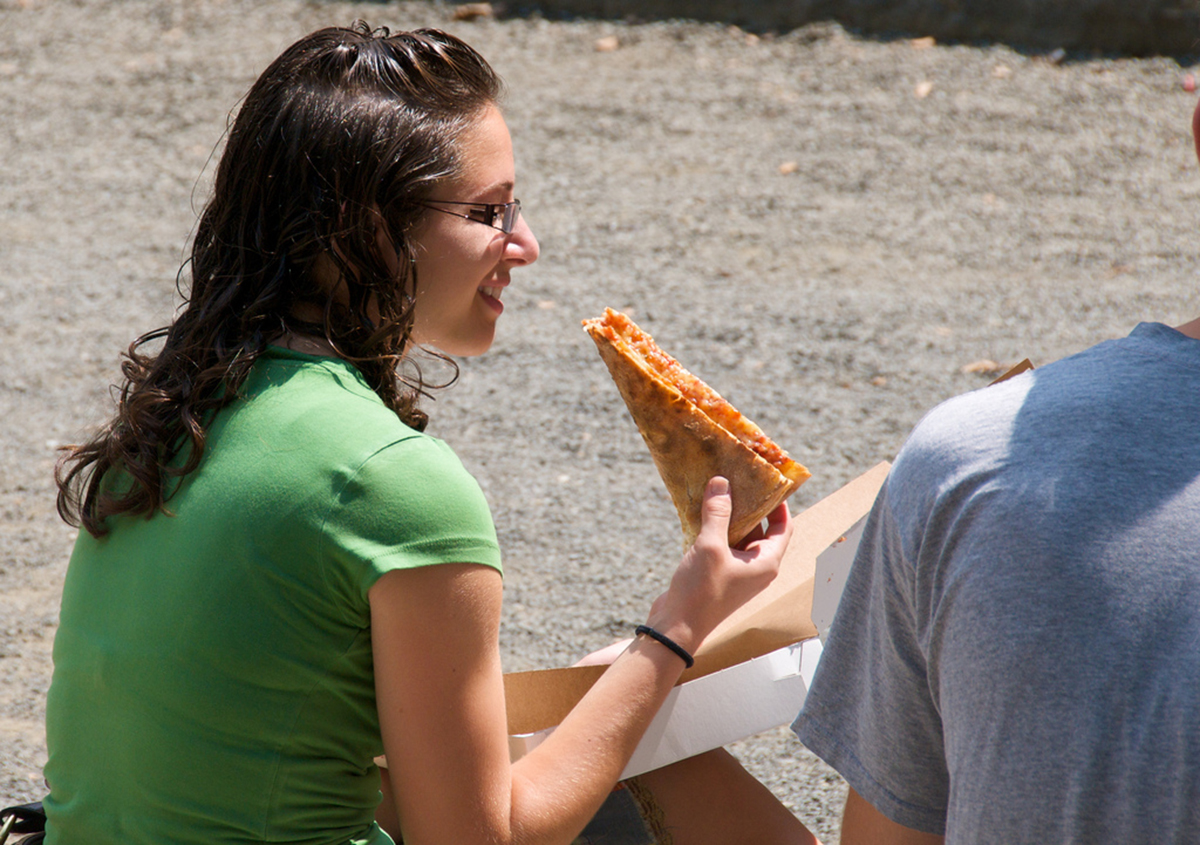Kiss goodbye to breakfast, you no longer need it when losing weight.
It may contradict what you've heard countless time, but how often you eat actually has very little to do with your weight loss progress. In fact, it has no direct impact on it whatsoever.

We've all heard the recommendations – eat little and often, have six to eight small meals per day, space your eating times two hours apart, eat regularly to boost your metabolism, avoid big meals, and so on.
On the face of it, it seems to make sense – eating stokes your metabolism and as you digest food, your body burns calories for extra energy, so the more frequently you eat, the larger the calorie burn. But it’s not that simple though. You get a larger calorie burn when you eat a bigger, higher calorie meal. You could eat one 500 calorie meal, or two 250 calorie ones, but the effect on your metabolism would be the same, making the one larger meal just as effective as eating two smaller ones.
The meal frequency myth is one of the biggest going. It’s up there with the avoiding egg yolks debacle and the notion that lifting heavy weights makes women big and bulky – based on pseudo science, and only considered true because so many people have recommended it over the years.
When you eat a surplus of calories, or eat at calorie maintenance (where calories in are equal to calories out) your body has a ready supply of calories for energy. When you cut calorie intake however, this quick access energy supply has gone, so your body has to tap into your stores of body fat, resulting in a leaner, lighter you.
Preparing five meals every evening to take to work the next day, plus making breakfast when you get up, eating when you get home, then sitting down to dinner again before bed can be exhausting. It’s also time consuming and can create awkward social situations. Your boss may not approve, and your colleagues may think you’re just a little odd if you start digging into a big salmon salad, or munching raw almonds in the middle of a meeting.
There’s also the panic when you miss a meal. You fear that your metabolism is going to come to a grinding halt, you’ll stop burning calories, and your fat loss will be ruined. This won’t happen though – remember that your body is a well-oiled machine, and your metabolism its engine. It keeps ticking over for hours and hours after you've eaten, burning calories all the time whether you've eaten or not.
The final issue with frequent eating is that it actually becomes very difficult not to over-eat. If you’re only eating 1500 calories per day, and have to divide these between six or seven meals, each serving ends up being tiny. At only 200 calories per meal, you’re looking at a small chicken breast with a few tablespoons of rice and a cup of broccoli, or for snacks half a protein bar or an apple and half an ounce of walnuts.
With all that being said, eating more frequently isn’t necessarily a bad thing. Here’s why…
Why More Frequent Eating May Benefit Fat Loss
In theory, there’s no difference in body composition or fat loss results from eating 10 times a day compared to one, but theory doesn’t always carry over to the real world.
Hunger
It’s highly likely you’ll feel pretty hungry after a few hours with no food and may even experience slight dizziness or feelings of sickness. While this isn’t necessarily detrimental on its own, it can lead many dieters to giving in to cravings.Hunger is the biggie.

When people are hungry, the first thing they reach for is something high in sugar – candy, cakes, pastries, soda – anything to get blood sugars up. Clearly this not only adds calories onto your daily intake, but can also spike insulin and blood sugar levels, leaving you feeling even more ravenous within an hour or so.
Large insulin spikes can also have a negative knock on effect for weight loss.
Workout Nutrition
If you’re involved in sport, or interested in increasing your performance, be it for cardio, leisure activities or strength training, workout nutrition is a huge issue.
Both pre and post workout meals play a big role in how you perform in your sessions. Ideally you should have a meal containing a complete protein (from meat, fish, dairy or a protein supplement) with a small portion of starchy carbs – oats, sweet potato, rice, etc. and some healthy fats from nuts, olive oil or avocado an hour or two before you train.
This provides an energy boost before you hit the gym and ensures there are adequate nutrients in the blood-stream, ready to kickstart the recovery process as soon as you’ve finished training.
The post workout meal is just as vital. It enables your muscles to repair and grow and helps stabilize blood sugar levels and replete glycogen stores. It should be similar to the pre workout meal, with calories adjusted to fit in with the rest of your day’s intake.
If you’re only eating two or three times a day, this may mean that a pre and post workout meal is not a viable option. While progress won’t necessarily be greatly reduced without workout nutrition, the general consensus is that eating a higher proportion of your calories around workout times appears to be optimal.
Social Issues
Many less frequent eaters skip breakfast. Not an issue usually, but what happens when you’re invited out for breakfast with friends, or have an early morning meeting or breakfast brainstorming session?
Likewise if your less frequent eating means you’re done with food by 5 or 6pm, this puts any late night meals out of the question, which can be pretty difficult if you decide to go for a night on the town.
The Wrap Up
Physiologically, how often you eat doesn’t matter one bit for fat loss. However, the psychological predicaments can have a knock on negative impact. The best approach is to set your calorie goals for the day, then use whatever meal frequency you feel suits you best and that you can stick to.
- “Meal Frequency and Energy Balance”, By Lyle McDonald, Published on November 18, 2008, Accessed on November 29th, 2012
- Retrieved from http://www.bodyrecomposition.com/research-review/meal-frequency-and-energy-balance-research-review.html
- Photo courtesy of Ed Yourdon by Flickr : www.flickr.com/photos/yourdon/3873603791/
- Photo courtesy of jduty on Flickr: www.flickr.com/photos/jduty/4746148074


Your thoughts on this